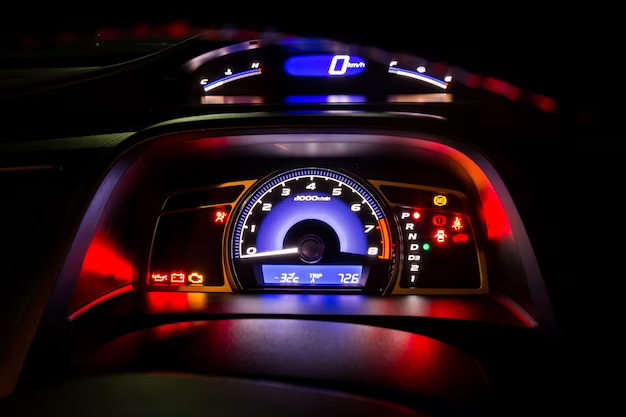A smooth-running engine is vital for the optimal performance of any vehicle. However, an issue that can disrupt engine performance is a cylinder misfire. When one or more cylinders in an engine fail to ignite fuel properly, it can result in a loss of power, decreased fuel efficiency, and potentially damage to engine components. To alert drivers of this problem, modern vehicles are equipped with cylinder misfire warning lights. In this article, we will explore the causes behind cylinder misfires, discuss the importance of diagnosing the issue, and provide solutions to address this problem effectively.
Causes of Cylinder Misfires:
- Ignition System Issues: One common cause of cylinder misfires is problems within the ignition system. Faulty spark plugs, ignition coils, or ignition wires can lead to weak or inconsistent sparks, resulting in incomplete fuel combustion and misfires.
- Fuel System Problems: Issues with the fuel system, such as a clogged fuel injector or a malfunctioning fuel pump, can disrupt the proper fuel delivery to the cylinders. Insufficient or irregular fuel supply can cause misfires.
- Air/Fuel Mixture Imbalance: An incorrect air/fuel mixture can contribute to cylinder misfires. If there is an excessive amount of air or fuel entering a cylinder, it can affect the combustion process and lead to misfires.
- Engine Mechanical Problems: Certain mechanical issues can cause cylinder misfires. These may include worn-out piston rings, damaged valves, or a malfunctioning camshaft. These problems can disrupt the proper compression and combustion within the cylinders.
Diagnosis of Cylinder Misfires:
Diagnosing the specific cause of a cylinder misfire is crucial to effectively resolve the issue. Here are some steps to diagnose cylinder misfires:
- Retrieve Error Codes: When the cylinder misfire warning light illuminates, it indicates that the vehicle’s onboard diagnostic system has detected a problem. The first step is to use a diagnostic scanner to retrieve the error codes associated with the misfires. These codes can provide valuable information to narrow down the potential causes.
- Inspect Spark Plugs and Ignition Components: Check the condition of the spark plugs. Worn-out or fouled spark plugs should be replaced. Additionally, inspect the ignition coils and wires for any signs of damage or malfunction. Faulty components should be repaired or replaced as necessary.
- Examine the Fuel System: Inspect the fuel injectors for clogs or leaks. Cleaning or replacing the affected injectors may be necessary. It’s also important to check the fuel pressure and ensure the fuel pump is functioning properly.
- Check Air Intake System: Verify that the air intake system, including the air filter and mass airflow sensor, is clean and free from obstructions. Any restrictions or sensor malfunctions can disrupt the air/fuel mixture and cause misfires.
- Conduct Compression Test: A compression test can help identify potential engine mechanical problems. By measuring the compression levels in each cylinder, it’s possible to detect issues such as worn piston rings or damaged valves.
Solutions for Cylinder Misfires:
Once the cause of the cylinder misfire has been identified, appropriate solutions can be implemented:
- Replace Spark Plugs and Ignition Components: If spark plugs, ignition coils, or ignition wires are found to be faulty, they should be replaced. Ensure that the replacements meet the manufacturer’s specifications.
- Clean or Replace Fuel Injectors: Clogged or malfunctioning fuel injectors can be cleaned using specialized cleaning solutions. If cleaning doesn’t resolve the issue, the injectors may need to be replaced.
- Repair Fuel System Issues: If the fuel pump or other fuel system components are malfunctioning, they should be repaired or replaced accordingly.
- Address Air Intake System Problems: Clean or replace the air filter and ensure the mass airflow sensor is functioning correctly. Any necessary repairs or replacements should be carried out.
- Resolve Engine Mechanical Issues: If mechanical problems are detected, such as worn piston rings or damaged valves, it’s crucial to consult a professional mechanic for proper repairs or replacements.
Regular Maintenance to Prevent Cylinder Misfires:
To prevent cylinder misfires and maintain the optimal performance of your vehicle, regular maintenance is essential:
- Follow Manufacturer’s Service Schedule: Adhere to the recommended service intervals for spark plug replacements, fuel system cleanings, and overall engine maintenance.
- Use High-Quality Fuel: Opt for high-quality fuel from reputable stations to minimize the chances of fuel system issues.
- Change Filters as Recommended: Regularly replace air filters, fuel filters, and other filters as per the manufacturer’s guidelines to ensure proper airflow and fuel delivery.
- Monitor Engine Performance: Pay attention to any signs of engine hesitation, rough idling, or reduced power. These can be early indicators of potential cylinder misfires.
Cylinder misfire warning lights serve as a crucial indicator of engine performance issues. By properly diagnosing the causes of cylinder misfires and implementing the necessary solutions, it is possible to restore engine performance and prevent further damage. Regular maintenance and timely repairs are key to minimizing the occurrence of cylinder misfires and ensuring a smooth and efficient driving experience.











